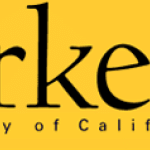- Industry: Education
- Number of terms: 4017
- Number of blossaries: 0
- Company Profile:
the anti-matter partner of the electron. It is identical in all respects to an electron, but it has positive charge.
Industry:Physics
One of the constituents of atoms. Along with the neutron, the proton can be found in the nuclei (centers) or atoms. Protons have a positive electric charge, and are composed of two up quarks and a down quark.
Industry:Physics
The theory of the strong interaction. It describes the exchange of gluons between quarks.
Industry:Physics
As yet undiscovered dimensions of space-time that convert force particles to matter particles and vice versa. Such dimensions are predicted in theories with supersymmetry or superstrings. The pair of particles that are converted into each other are called superpartners.
Industry:Physics
At very small distances, the principles of quantum mechanics are necessary to accurately describe physical phenomena. Developing a theory that incorporates both the principles of quantum mechanics and gravity, a theory of "quantum gravity", has proven to be extremely difficult. String theory is the first real hope of providing such a theory.
Industry:Physics
In microscopic systems, particles such as electrons and protons behave like waves. Quantum mechanics replaces the more familiar Newtonian mechanics to describe such phenomena.
Industry:Physics
The name given to the labels that describe various characteristics of elementary particles, atoms and molecules. Examples include the charge and spin of a particle.
Industry:Physics
One of the fundamental constituents of matter. These particles posses spin ?. They come in six flavors: up (u), down (d), strange (s), charm (c), bottom (b), and top (t). Only the up and down quarks are commonly found outside of accelerators. Protons and neutrons are composed of up and down quarks.
Industry:Physics
